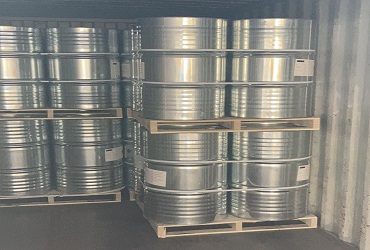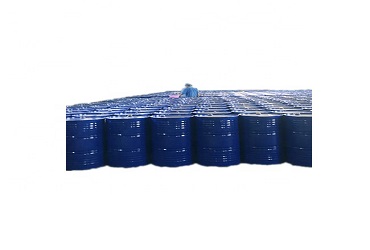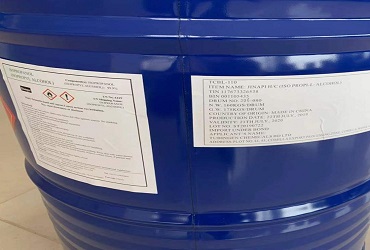Lithium carbonate is an important industrial chemical. Its main use is as a precursor for compounds used in lithium-ion batteries. Glasses derived from lithium carbonate are useful in ovenware. Lithium carbonate is a common ingredient in both low-fire and high-fire ceramic glaze. It forms low-melting fluxes with silica and other materials. Its alkaline properties are conducive to changing the state of metal oxide colorants in glaze, particularly red iron oxide (Fe2O3). Cement sets more rapidly when prepared with lithium carbonate, and is useful for tile adhesives. When added to aluminium trifluoride, it forms LiF which gives a superior electrolyte for the processing of aluminium.
Application
The main use of lithium carbonate is as a precursor to lithium compounds used in lithium-ion batteries. In practice two components of the battery are made with lithium compounds: the cathode and the electrolyte.
The electrolyte is a solution of lithium hexafluorophosphate, while the cathode uses one of several lithiated structures, the most popular of which are lithium cobalt oxide and lithium iron phosphate. Lithium carbonate may be converted into it before conversion to the compounds above.
Lithium is extracted from primarily two sources: spodumene in pegmatite deposits, and lithium salts in underground brine pools. About 82,000 tons were produced in 2020, showing significant and consistent growth.
From underground brine reservoirs
As an example, in the Salar de Atacama in the Atacama desert of Northern Chile, SQM produces lithium carbonate and hydroxide from brine.
The process involves pumping up lithium rich brine from below the ground into shallow pans for evaporation. The brine contains many different dissolved ions, and as the concentration increases, salts precipitate out of solution and sink. The remaining liquid (the supernatant) is used for the next step. The exact sequence of pans may vary depending on the concentration of ions in a particular source of brine.
In the first pan, halite (sodium chloride or common salt) crystallises. This has insufficient economic value and is discarded. The supernatant, with ever increasing concentration of dissolved solids, is transferred successively to the sylvinite (sodium potassium chloride) pan, the carnalite (potassium magnesium chloride) pan and finally a pan designed to maximise the concentration of lithium chloride. The process takes about 15 months. The concentrate (30-35% lithium chloride solution) is trucked to Salar del Carmen. There, boron and magnesium are removed (typically residual boron is removed by solvent extraction and/or ion exchange and magnesium by raising the pH above 10 with sodium ) then in the final step, by addition of sodium carbonate, the desired lithium carbonate is precipitated out, separated, and processed.
Some of the by-products from the evaporation process may also have economic value.
There is considerable focus on the use of water in this water poor region. SQM commissioned a life-cycle analysis which concluded that water consumption for SQM's and carbonate is significantly lower than the average consumption in production from the main ore-based process, using spodumene. A more general LCA suggests the opposite for extraction from reservoirs as a whole.
The majority of brine based production is in the "lithium triangle" in South America.
From 'geothermal' brine
Another potential source of lithium is the leachates of geothermal wells, which are carried to the surface. Recovery of lithium has been demonstrated in the field; the lithium is separated by simple precipitation and filtration. The process and environmental costs are primarily those of the already-operating well; net environmental impacts may thus be positive.
The brine of United Downs Deep Geothermal Power project near Redruth is claimed by Cornish Lithium to be valuable due to its high lithium concentration (220 mg/l) with low magnesium (<5 mg/l) and total dissolved solids content of <29g/l, and a flow rate of 40-60l/s.
From ore
α-spodumene is roasted at 1100 °C for 1h to make β-spodumene, then roasted at 250 °C for 10 minutes with sulphuric.
As of 2020, Australia was the world's largest producer of lithium intermediates, all based on spodumene.
In recent years many mining companies have begun exploration of lithium projects throughout North America, South America and Australia to identify economic deposits that can potentially bring new supplies of lithium carbonate online to meet the growing demand for the product.
From clay
Tesla Motors announced a revolutionary process to extract lithium from clay in Nevada using only salt and no acid. This was met with scepticism.
From end of life batteries
A few small companies are actively recycling spent batteries, mostly focusing on recovering copper and cobalt. Some do recover lithium also.
Other
In April 2017 MGX Minerals reported it had received independent confirmation of its rapid lithium extraction process to recover lithium and other valuable minerals from oil and gas wastewater brine.
Electrodialysis has been proposed to extract lithium from seawater, but it is not commercially viable.














